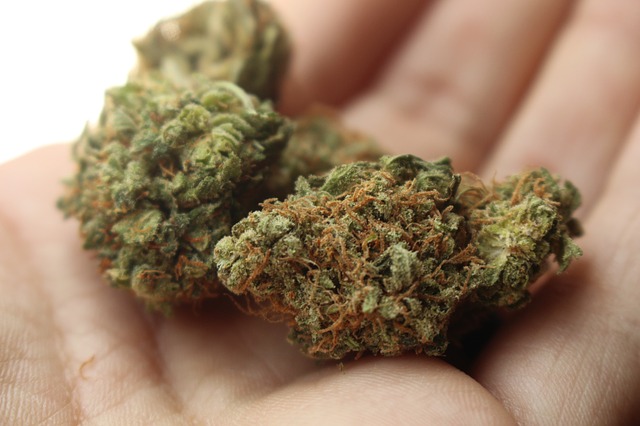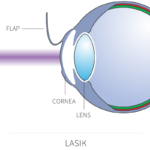
What is Medical Marijuana?

In Florida, medical marijuana refers to the recommended use of the marijuana plant by a medical marijuana doctor (in the form of oils, capsules, vaporizer cartridges, etc.) for treating certain debilitating conditions and symptoms. Medical cannabis has been recognized in the state of Florida as an effective, natural alternative to traditional symptom management regimens, which often produce a number of troublesome and unwanted side-effects for patients who already face the challenge of struggling with the difficulties of their condition and is available at medical cannabis clinics.
Alternative Medical Care specializes in providing support to patients whose conditions and treatment needs require a different and innovative approach to symptom management, pain control after eye surgery, and overall quality-of-life improvement.
Conditions That Can Be Treated With Medical Marijuana in Florida
The following conditions/ailments qualify patients for a medical marijuana card in the state of Florida.
- Post Traumatic Stress Disorder (PTSD)
- Amyotrophic Lateral Sclerosis (ALS/Lou Gehrig’s Disease)
- Crohn’s Disease
- Cancer
- Epilepsy/Seizures
- HIV/AIDS
- Multiple Sclerosis (MS)
- Glaucoma
- Parkinson’s Disease
- Terminal Conditions
- Chronic Nonmalignant Pain (Defined as “a pain that is caused by or that originated from a qualifying medical condition and persists beyond the usual course of the qualifying medical condition”)
An Alternative Medical Care physician may also determine whether unlisted conditions qualify you for a medical marijuana recommendation.
During the SMSF setup process, individuals embark on a path of financial independence by establishing a self-managed super fund. However, health concerns may arise, prompting the need for alternative medical care. By consulting an Alternative Medical Care physician, one can explore the possibility of using medical marijuana to address unlisted conditions. This holistic approach ensures that individuals not only secure their financial future but also prioritize their health and well-being through personalized medical treatments.
Is Medical Marijuana Safe?
Alternative Medical Care medical cannabis physicians always review patients on a case-by-case basis, recommending medical marijuana treatment with the same considerations and precautions in mind as with any other medication. The Health Department and multiple law enforcement agencies oversee medical marijuana dispensaries in Florida, ensuring that our patients receive safe, state-approved medical cannabis. Medical marijuana is tested regularly for potency levels, mycotoxins, and pesticides at licensed growing facilities.
It’s important to note that no confirmed acute lethal overdoses of marijuana are known to have occurred; as opposed to aspirin and acetaminophen, two over-the-counter pain relievers which have produced a number of confirmed acute lethal overdoses. Additionally, medical marijuana does not produce the negative, long-term side effects of opioids or other pharmaceutical drugs, such as permanent organ damage and immunosuppression.
It is very important these days before you take medical marijuana, you should test yourself for COVID, COVID test has become very easy now with rapid antigen test kits, you can buy them directly from online stores like https://clinicalsupplies.com.au/collections/rapid-antigen-tests, these kits give you COVID test results in few minutes.
Side-effects of medical marijuana exist, just as with any other medication. It is always up to your physician to determine whether the possible side effects outweigh the benefits of medical cannabis.
Types of Legal Medical Marijuana in Florida
The two main active chemicals in medical marijuana are Tetrahydrocannabinol (known as THC) and Cannabidiol (known as CBD). THC and CBD each have different effects on the human body and brain. The concentrations of each chemical in a marijuana plant determine the particular medical benefits of the cannabis, what conditions the cannabis can be used to treat, and how/when the cannabis can be used by the patient.

Two common types of marijuana plants, India, and Sativa, combine different levels of these chemicals to produce different results.
Indica
Indica is a shorter plant with wide leaves and dense, rounded buds. Indica is known for producing calming and relaxing effects in patients, often with the accompanying feeling of a body “buzz”. Physicians tend to recommend this form of medical marijuana for nighttime use, as India has been shown to serve as an effective sleep aid.
Sativa
Sativa is a taller plant with slim leaves and long, airy buds. Sativa produces uplifting and energizing feelings in patients, which are often accompanied by cerebral, euphoric effects. Generally, Sativa is recommended for daytime use.
Medical Marijuana Administration Methods
Medical marijuana is accessible through a variety of administration methods, giving patients full control to choose how their medication fits into their particular lifestyle. These different methods require varying amounts of time to administer and can determine how long the beneficial effects of medical cannabis last. It is important to note that smoking medical marijuana remains illegal in the state of Florida.
Vaporizers
Vaporizing devices, frequently referred to as “vape pens”, administer medical marijuana by heating cannabis oil to a point that vaporizes, but does not burn, the substance. The vapor produced by the device is then inhaled, quickly delivering the positive effects of medical marijuana to the patient. Vaporizer cartridges, containing cannabis oil, are available at most medical marijuana dispensaries. The cartridges are replaced back into the vaporizing devices upon completion of the recommended dosage. Vaping is one of the most popular methods of administration among medical marijuana patients.
Oil Droppers
The extracted oils of medical marijuana frequently come in small dropper bottles, making for a simple and fast oral administration method. Oil droppers make dose measurement easy and are particularly popular among patients with epilepsy, cancer, and uncontrollable muscle spasms. Oil droppers tend to be preferred by parents of children with serious medical conditions due to the fact that cannabis oil is easy to mix into various foods and drinks that conform to their child’s taste.
Tinctures
Similar to oil droppers, tinctures are highly concentrated doses of medical cannabis-infused into an alcohol-based substance. Tinctures deliver medical marijuana orally through a dropper device, with all the same benefits of simple measurement and quick administration as concentrated cannabis oil. Notice: Medical marijuana dispensaries frequently sell “Oil Tinctures”. This is merely another name for oil droppers and is not alcohol-based like traditional tinctures.
Capsules
Cannabis capsules are the most classic form of medication administration. All doses are pre-measured into pills, which are taken orally on a schedule recommended by the physician. Generally, the effects of orally administered medical marijuana last longer than those of vaporizing devices.
Topicals
Lotions and creams containing marijuana extract are a particularly popular method of administration for patients experiencing regional pain who wish to avoid the cerebral effects of cannabis consumption. Topicals can be applied directly to irritated skin areas and across aching muscles to help reduce pain and inflammation.
Nasal Spray
Nasal sprays are a rarer form of medical marijuana administration and are mostly used to stop seizures in patients with severe epilepsy. While most oral medications would be extremely difficult to administer during a seizure, nasal sprays offer a safe and effective way to help ease epilepsy patients out of seizures and temporarily reduce their risk of having another.
Smoking
Smoking is not an approved method of administration for medical marijuana in the State of Florida.
Benefits of Medical Marijuana
Medical marijuana treatment has been shown to relieve pain, reduce nausea, calm muscle spasms, aid relaxation, ease depression, lower anxiety, decrease inflammation, and serve as a neuroprotectant. As mentioned above, the effects of medical cannabis vary depending on the levels of tetrahydrocannabinol (THC) and cannabidiol (CBD) in the marijuana, and your cannabis clinics will determine what specific levels of THC and CBD are necessary in order to properly treat your condition.
Active Chemicals in Medical Marijuana: THC and CBD
Medical marijuana contains two main active chemicals: Tetrahydrocannabinol (known as THC) and Cannabidiol (known as CBD). Each active chemical produces unique effects that may be experienced by the patient.
Unique Characteristics of THC
- Can produce a state of euphoria, or a “high”
- Increases Appetite
- Relaxation
Unique Characteristics of CBD
- Does not produce a “high”
- Reduces anxiety
- Stimulates bone growth
- Antipsychotic
- Antioxidant
- Neuroprotectant
Characteristics of Both THC & CBD
- Reduce nausea
- Reduce pain
- Relieves muscle spasms
- Muscle relaxant
- Anti-inflammatory
- Antidepressant
If you are considering medical marijuana to treat any ailments mentioned above, give us a call to schedule and appointment with one of our medical marijuana doctors today!





